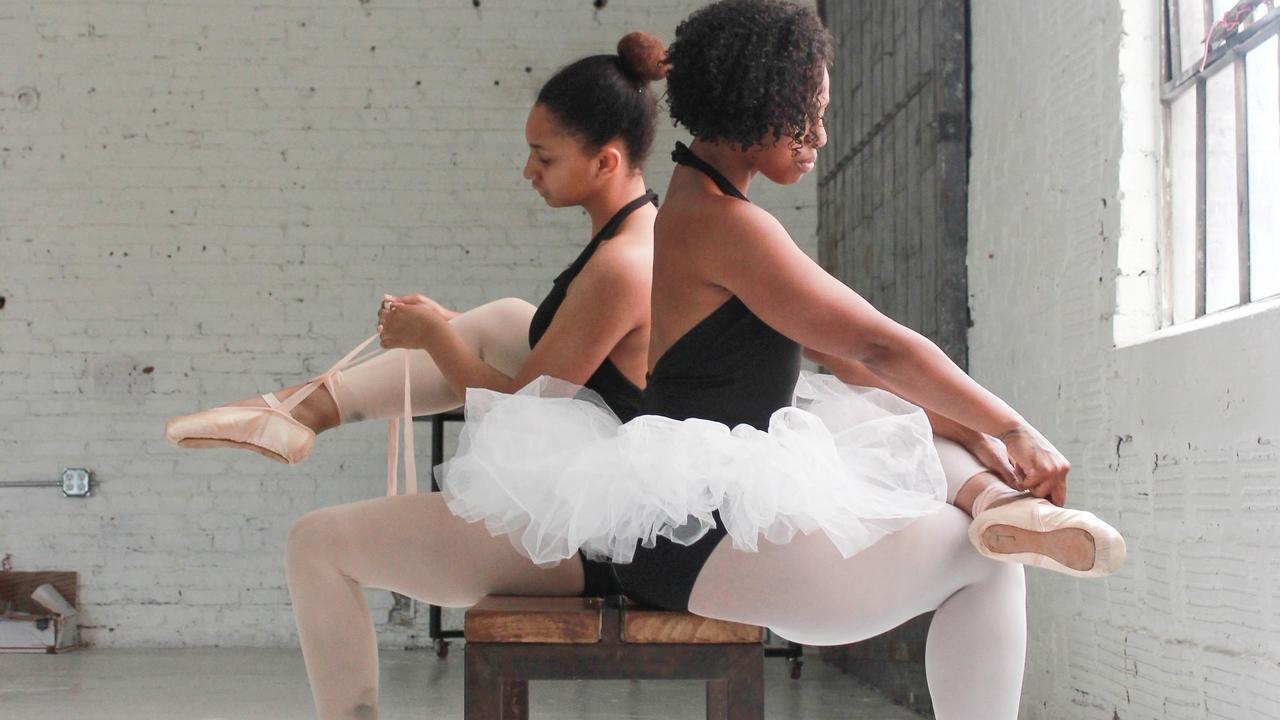7 surprising ways to embrace (or at least get through) the winter

Ah, February in New York. It's that time of year when the snow is the slushiest, the days are the darkest, and many of us feel cranky, tense, and cooped-up. Magical, isn't it?
Spring is just around the corner…even if that corner is still a couple months away (it'll get here, I promise!). Till then, here are some ways to invite the warm, bright liveliness of spring into your wintry days:
- Try something new. Spring is all about rebirth and renewal – so put yourself out there! Take an art class, sign up for that Ashtanga yoga, volunteer at your kids' school. When you step out of your comfort zone (especially when it involves movement and creativity), you shift your mindset toward the positive and the possible, and add an extra "spring" in your step.
- Move your body. The cold winter blues can be awful for our posture. We walk around hunched over, shoulders tense, contracting everything inward for warmth (and out of habit). Meanwhile, our breaths become short and shallow. Ouch! All that ...
Do you keep your agreements? Here's why you definitely want to

For New Year's this year, my family and I took a vacation to Aruba, where my son Ty taught me a valuable life lesson. It had to do with tubing. Yes, I mean the kind where you're behind a motorboat, being violently whipped around…but I'll get to that in a second.
It was our last day, and the four of us had just finished a 4-hour ATV tour through the national park. I felt like I'd already "done" the adventure for the day, so I was looking forward to relaxing on the beach with a pina colada. But as Ty and I stood looking out at the ocean, he reminded me: "You know, we talked about going tubing. Remember?"
I sighed. Yes, I remembered. It looked like a giant headache waiting to happen. Instead of a tube, you sat in a big inflatable sofa-like thing, and the boat jerked you around for twenty minutes while you hung on for dear life. I'm all for adventure – but that pina colada was really calling my name.
"It's okay," said Ty, before I even opened my mouth. "We don't have to do it. I can tel...
The Art of Saying No (How, When, and Why to Do It)

Recently, someone asked me about how and when to say no. I’m glad they did, because it's such an important skill, and because it's one I've struggled with.
Okay, that's an understatement. Sometimes it feels like my entire life is about not saying no enough. Which is why I know all about it!
Let's talk about why it's crucial, and some ways to go about saying no – especially when it's hard.
First, it helps to understand why it's such a hard thing to do. There are a few reasons:
- We like being helpful. Many people – especially women, and those who help people for a living (coaches, teachers, therapists) – have a hard time saying "no" because it's in their nature to help people. That's me – I love helping people, so when someone asks me for something, my first inclination is to jump on it. The problem is, I tend to overcommit to the point that I'm not able to follow through, which can disappoint people more than if I just said no up front.
- We want to be liked. It also comes down to h ...
How to open yourself up to possibility in the new year

A couple years ago, a woman named Jenn came to me for coaching. She was an interior designer here in New York, and she was going through a lot of changes: the end of a long-term relationship, moving to a new apartment, adjusting to living alone. She wasn't sure exactly what she wanted, but she felt like she was starting over, and she wanted to make it count.
At the end of our first session, I asked Jenn to choose something to work on. "In what area in your life do you want to make some real change?"
She thought for a minute. "You know," she said, "I thought I'd say growing my business, or start dating again. Because I do want those things, eventually. But that's not what I thought of just now." She looked nervous.
"What did you think of?" I said.
"I've always wanted to learn how to dance," she said sheepishly. "I've always wanted to be a ballerina. Maybe now's the time to do that."
"That's fantastic!" I said.
She gave me a s...
What to do when you're nervous (especially around the holidays)

Yesterday, I got a phone call from Clare, one of my earliest clients who'd come to me when she needed help making a big decision in her career. After a decade working in business consulting, she'd successfully transitioned to academia, where she'd recently gotten tenure teaching business psychology at a prestigious college.
"But that's not what I'm calling about," she said. "I want to tell you about my ice dancing performance this weekend."
Ice dancing?! "Tell me about it!" I said.
Here's what happened. After finals week, Clare headed to her New England hometown to spend time with her aging parents. While there, she called up the rink where she'd taken ice dancing lessons years before (and where she'd performed in several showcases), and booked a time to practice.
While there, the owner saw her practicing and came out to watch. "There's still time, you know," he said from the bleachers.
She skated over. "Time for what?"
...
One simple trick to make life easier

If you’ve ever watched a comedy improv show, you might have wondered, “How on earth do they do that?” Improv actors—the funny ones, anyway—have a gift for creating and weaving together storylines on the spot, in front of a live audience. It’s amazing to see, and the results can be hilarious.
But it doesn’t happen by chance. Any actor will tell you that there’s one cardinal rule of improv, and it’s this: Accept whatever happens. Always.
In improv lingo, the rule is this: Say “yes, and.”
What does that mean, exactly? If you’re doing improv, and another actor says, “Let’s go skydiving,” you can’t say, “No way, I’m scared of heights.” If you say, “We’re being invaded by giant mutant aliens!” they can’t say “No, it’s just the mailman.” Everyone onstage must roll with any new idea. Every time a new development enters the story, the entire cast has to accept it, and build the story from there.
This can be a fantastic tool in life.
One great example of this is back when Moticise was first...
How Your Inner Rebel Can Help You Succeed

One reason we make things hard is that we often believe there's a particular way things are “supposed” to be done.
We think we need a certain degree to apply for the job we want. We think we need to mingle awkwardly at cocktail parties in order to network. We think we have to join a gym to get in shape. Above all, we think we have to be stressed to the point of sleeplessness in order to be productive.
But there are many ways to do things. Just because someone else went from A to B to C doesn’t mean you have to. Can you jump right to C? Can you start at Q?
Just because convention says “this is how it’s done”—that doesn’t mean that's right.
In fact, very often that slows us down.
My friend John has a knack for seeing through all the should's and supposed to's. An ultra-creative and successful entrepreneur in the merchant services business (and now author and founder of the company True Freedom), he got his start in San Diego, when he branched off from convention and did what made se...
How Jim Carrey Can Help You Take a Risk
I would love to learn to dance, but my life’s just way too busy right now.
If I could do anything, I’d start a catering business...but I have to put my kids through college first.
I’ve always wanted to try my hand at writing screenplays, but I can’t do that while I’m working full-time. I have loans to pay. I need the job security.
I hear these kinds of things all the time - fears that have taken the form of excuses.
At the root of all those statements is this: “I want something, but it feels too risky.”
Don’t get me wrong - those risks are certainly real. I’m not here to downplay them. That said, I’d like to present a different side to the story.
It comes, unexpectedly enough, from Jim Carrey.
In 2014, Jim Carrey gave the commencement speech at Maharishi University in Fairfield, Iowa. His message was so profound that the video went viral. At the time I’m writing this, it has over 13 million views. And it had to do with how “playing safe” might be the riskiest thing you can do.
...Five Lessons from my Trek to Machu Picchu

Two years ago for my birthday, my sisters and I accomplished one of my all-time big-grin, bucket-list goals: climbing Mount Kilimanjaro. While we were there, my sister Karin said, "If I were to do something big for my birthday, it would be Machu Picchu."
We all agreed that would be amazing. But as is often the case, life happens, and we just never planned it. Until late August, when Karin's son Dan realized that his mother's birthday was coming up. "If we're going to do this, it's got to be soon," he said.
It was terrible timing. None of us had been training. Isabel was in Africa, of all places. But we agreed that we could do it – me, Karin, Isabel, Karin's kids Kira and Dan, and Dan's girlfriend Brianna.
"Are we up for this?" we kept saying to each other. In Africa, Isabel had met someone who said Machu Picchu is a lot like Kilimanjaro. Uh-oh, I thought when I heard that. Can we really do this? We didn't know. But we booked the trip for mid-September, and when we found ourselves in...
How to use obstacles your advantage

When I first met my client Michele, she was teaching poetry at a small college in New England. Like a lot of people who come to me, she'd been feeling lost. She felt too busy to write her own poetry, and even if she had time, she couldn't seem to rekindle that spark she'd once had.
It was obvious that Michele didn't love her job, so I wasn't surprised when during our second session, she decided to brush up her resume. She had a passion for animals, and she'd always wanted to work animal rights. So, shyly, she applied to a few positions. A few weeks later, when we met for our weekly phone session, she had some news.
"An animal rights center offered me a job," she said. "You're talking to the new Policy Associate…if I accept, that is."
"Congratulations!" I said. This seemed like a huge step toward a more fulfilling career for her. "That's fantastic. Are you going to accept?"
"I don't know," she said. "It does sound really cool…"
As we talked through what it would mean to make this c...


